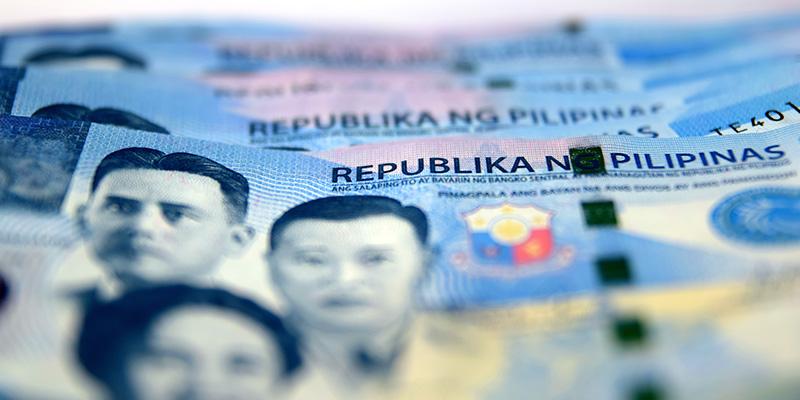Economists say ‘Zero Remittance Week’ would be manageable

The planned “zero remittance week” of overseas supporters of former President Rodrigo Duterte could impact economic growth should it continue, but economists on Wednesday said this is still hypothetical and “manageable,” and inflows are just likely to be delayed and spill over to the next month.
According to Bank of the Philippine Islands (BPI) lead economist Emilio Neri Jr., the plan of some overseas Filipino workers (OFWs) to stop sending money to the Philippines from March 28 to April 4 is still a “very big if,” and this would largely depend on if the overseas Filipinos can afford this.
“Assuming na kaya nila talagang gawin ‘yun, na ma-afford nila na hindi mapadalan ‘yung relatives nila (that they can really do that, that they can afford not to remit to their relatives), then that will clearly widen the current account position, negative position, and have some negative consequences on the exchange, on the reserves accumulation plan of the government, and it may actually affect interest rates,” he said in a virtual briefing.
“Baka hindi makapag-cut si BSP (The BSP may not cut [rates]) if the outflow or the inflow really dries up substantially. It can have a sizable effect on those factors I mentioned. Even growth can be dragged since it’s a major funder of household final consumption,” he added.
This comes as a number of Duterte supporters overseas — primarily based in Europe — said they plan to stop remittances to the Philippines for a week in protest of his arrest by the International Criminal Court (ICC), and to push authorities to bring him back to the Philippines.
Neri said that zero remittance could push the peso to fresh record lows of up to P62:$1, and force the Bangko Sentral ng Pilipinas (BSP) to postpone any rate cuts and maybe even hike policy rates later this year, “but this is a big if. It’s a very big if.”
“I don’t know who the spokesperson or who was it that made a statement on whether it is really representative of our overseas Filipinos. Again, if you look at the number, a lot of them still come from the US and the Middle East, and we’re not sure whether these people who aired the statement fairly or adequately represent our overseas Filipinos,” he said.
Latest data available from the BSP show that cash remittances or money transfers through banks or formal channels stood at $2.918 billion, down from $3.380 billion in December 2024, but higher than the $2.836 billion in January 2024.
The US accounted for 41.2%, followed by Singapore with 7.5%, Saudi Arabia with 6.6%, Japan with 5.7%, the United Kingdom with 4.7%, the UAE with 3.5%, Canada with 3.1%, Taiwan and Qatar with 2.8% each, and Malaysia with 2.4%, while other countries accounted for the remaining 19.7%.
Forecasting a 3% growth in remittances this year to about $35.5 billion, BPI’s Marco Javier said zero remittances — assuming that there are no inflows at all — would translate to around $97.3 million per day.
“It can be a bit substantial, but trying to convince people, especially those that have amortizations for their housing loan, their can loan, and of course also the tuition for their kids to stop, might be a bit hard to convince. Your credit standing might be put at risk,” he said in the same briefing.
“We did see that predominantly US and Middle East ang ating mga (are our) sources, so we will see if they are able to convince that side of the fence to stop,” he added.
Meanwhile, Rizal Commercial Banking Corp. (RCBC) chief economist Michael Ricafort said not all overseas Filipinos are expected to participate and the effects could be manageable, as he cited that latest data show that Europe accounts for 10.8% of total remittances in January, with the European Union accounting for 5.3%,
“(T)he effects could be slight/manageable given the relatively lower share of total OFW remittances for Europe and EU. However, not all would also participate, in view of diverse views by OFWs. Some OFWs may not participate if their families/dependents need the money that they send in view of the need to pay for basic necessities,” he said in a separate commentary.
“If there would be a temporary stop in remittances, the amounts to be remitted would be lumped/carried over thereafter, so these could just be delayed/spilled over spending by OFW families, thereby could partly neutralize any earlier adverse effects on the overall economy,” he added.
For its part, Malacañang appealed to OFW groups in Europe to keep calm and consider justice for the victims of Duterte’s war on illegal drugs. Police records show that deaths under the drug war reached 6,000, but human rights groups contend that these were as much as 30,000, including vigilante killings.
Duterte, who repeatedly said he would accept full legal responsibility for the consequences of his bloody campaign against illegal drugs, was brought to The Hague in The Netherlands earlier this month to be tried for crimes against humanity.
One of his legal counsel, lawyer Nicholas Kaufman, said Duterte is being “illegally detained” and should be brought back to the Philippines “as soon as possible.” —LDF, GMA Integrated News




